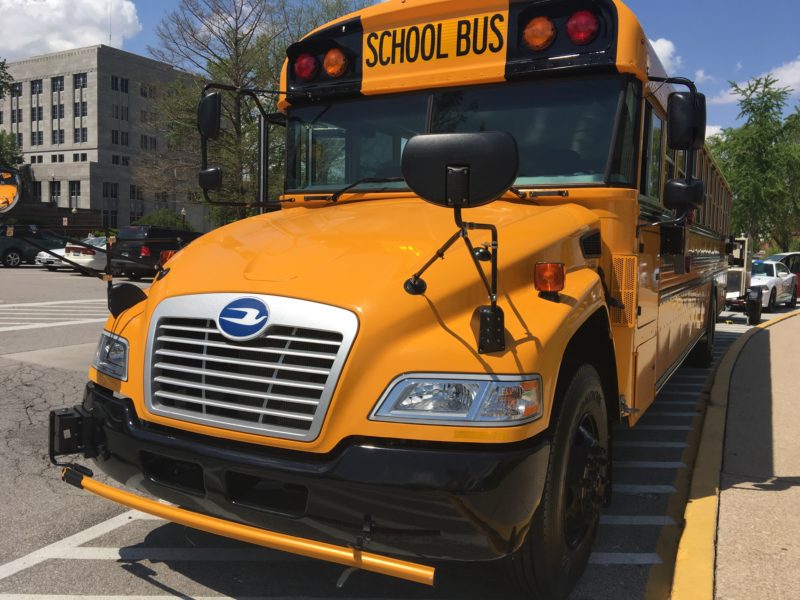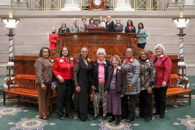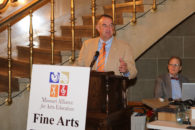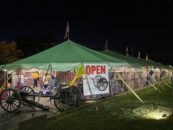JEFFERSON CITY, Mo. – Hundreds turned out Wednesday afternoon for the National Alternative Fuel Vehicle (AFV) Odyssey Day, the focus of which is to highlight alternative fuels and technological advances.
The event, hosted at the Missouri State Capitol by by both the St. Louis and Kansas City Clean Cities Coalitions, sought to give the public a chance to learn more about alternative fuel sources like biodiesel, natural gas, electricity and propane in hopes of drawing more people to use what they tout as a cleaner and more environmentally-friendly source for fuels.
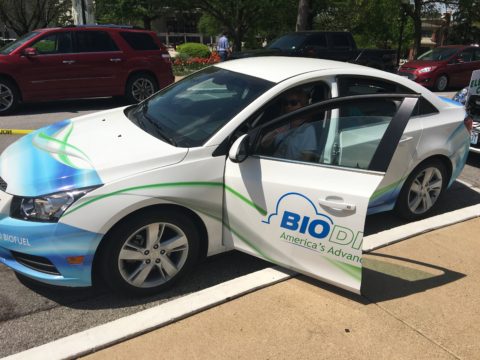
Several vehicles lined the sidewalk in front of the Capitol on the south lawn, including biodiesel cars and a bus fueled by propane, along with food and drinks for all in attendance.
Kevin Herdler of the St. Louis Regional Clean Cities Coalition says the event has been going on for more than 20 years, and it just happened to work out in conjunction with Odyssey Day.
“It’s a day to promote American fuels. By using American fuels, it creates jobs, it cleans the beautiful air we have today, and it gets us off foreign oils,” Herdler said. He says that the versatility and various uses for the alternative fuels are far-reaching and cost-effective.
“In most cases, there’s little bit more up front costs to convert the vehicles, but in the long run, it’s going to pay you back because the fuel normally is less than gasoline or diesel, and is so much cleaner than what’s coming from the gasoline or diesel,” Herdler added.
One of the most noteworthy advances made has been the usage of propane to fuel school buses, which has been catching on at some districts throughout the state. One such vehicle, the BlueBird Vision propane school bus, was prominently displayed in front of the Capitol on Wednesday.
Steve Ahrens, President of Missouri Propane Gas Association (MOPERC), noted that, in a time when budget funding is tight, and school transportation faces significant cuts, propane buses could make a difference in the amount of funding required.
“Propane is much cleaner than gasoline or diesel, and it’s particularly important right now because the state of Missouri has a $40 million settlement through the Volkswagen ‘Diesel-gate’ case, and that amount is going to grow,” he said. “That money has to be used to mitigate nitrogen oxide emissions. And one of the best ways to do that is to replace old diesel buses with propane buses.”
Right now, both the Neosho and Fort Zumwalt school districts have turned to propane buses for usage. Zumwalt currently has purchased propane buses three years in a row, while Neosho is looking into purchasing propane buses, with the only catch being how many to buy.
Ahrens says the benefits to such a move go beyond a monetary issue. He says it’s also about doing what’s best for kids.
“They’re less harmful to student health,” Ahrens said. “Because of the particulate matter that diesel has, young lungs are particularly susceptible to that matter, and it can lead to asthma and other breathing conditions, and has even been linked to cancer. So, getting diesel out of the school environment is really a priority for us.”
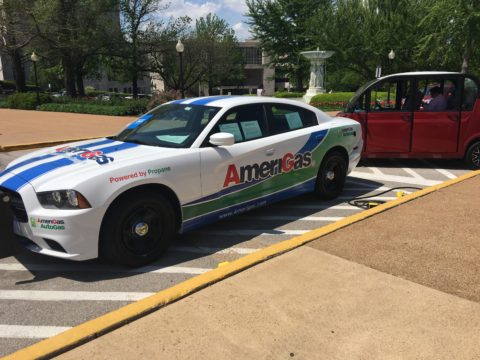
“Propane buses have a very clean emissions profile and meet those specifications, and the best part is that they’re cheaper to operate once you get them and quieter… we’ve got a lot of great success stories out there about propane buses.”
But the buck doesn’t stop there. Propane has already become useful for fueling vehicles in the state capital, as the lawnmowers used to keep up the lawns of the Missouri State Capitol run on the fuel. Arenas also noted that one of the demo vehicles on display was a propane-powered police cruiser, a Dodge Charger, which he says is also something we could see more of in the coming days.
Benjamin Peters was a reporter for The Missouri Times and Missouri Times Magazine and also produced the #MoLeg Podcast. He joined The Missouri Times in 2016 after working as a sports editor and TV news producer in mid-Missouri. Benjamin is a graduate of Missouri State University in Springfield.

